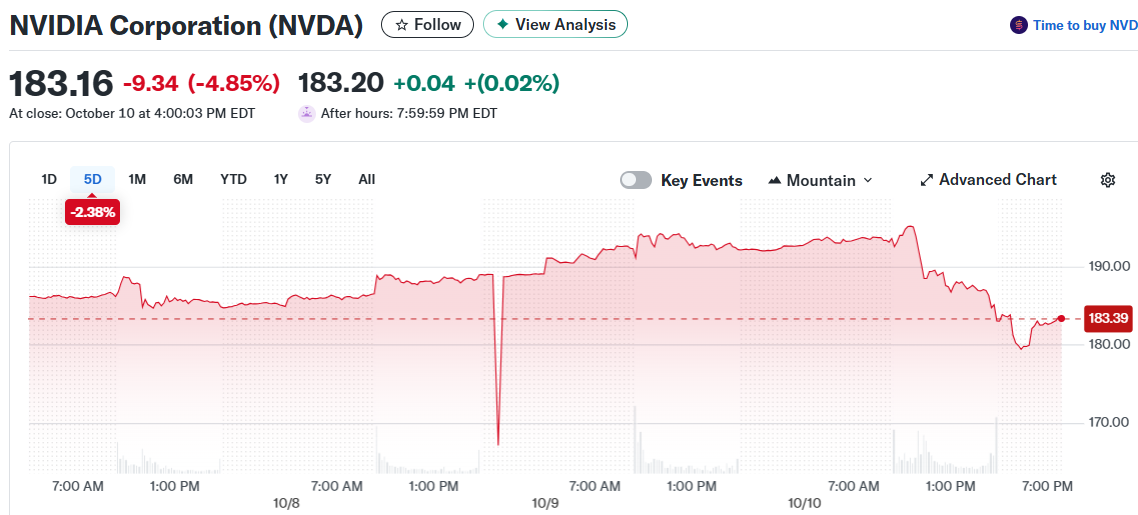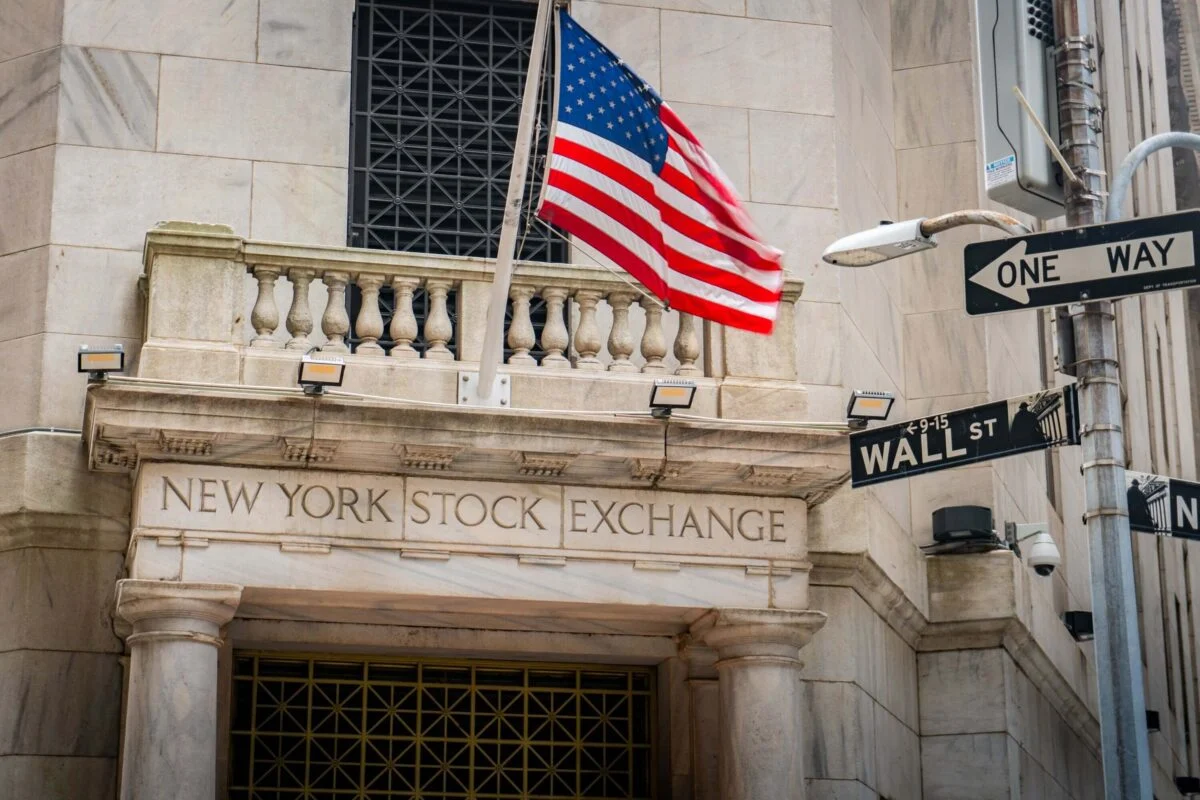TLDR
- Tech megacaps lost $770 billion in market value on Friday as the Nasdaq fell 3.6%, marking its worst day since April
- President Trump threatened a 100% tariff on Chinese imports starting November 1, adding to existing 30% tariffs already in place
- Nvidia lost $229 billion in market cap, Amazon dropped $121 billion, and Tesla fell $71 billion during Friday’s sell-off
- Trump’s threat came after China restricted exports of rare earth minerals, requiring foreign companies to get special approval for shipments
- The president also threatened export controls on “any and all critical software” from American firms, causing additional after-hours stock declines
President Donald Trump announced plans for a 100% tariff on Chinese imports starting November 1, causing major technology stocks to lose $770 billion in value on Friday. The Nasdaq dropped 3.6% while the S&P 500 fell 2.7%, marking the worst trading day for both indexes since April.
*TRUMP: US WILL IMPOSE 100% TARIFF ON CHINA STARTING NOV 1
Welcome back to the trade war. pic.twitter.com/clooxnR8zc
— Geiger Capital (@Geiger_Capital) October 10, 2025
Trump’s tariff threat came in response to China’s new restrictions on rare earth mineral exports. China announced Thursday that foreign companies must now obtain special approval to ship these materials abroad. The restrictions also apply to mining, smelting, and recycling technologies, with military-related export requests facing automatic rejection.
The president called China’s export controls “shocking” and “out of the blue” in a social media post. He stated the 100% tariff would be placed “over and above” the 30% tariffs already imposed on Chinese goods. Trump also threatened to implement export controls on critical software from American companies.

Nvidia experienced the largest single-day loss, with its market value declining by $229 billion. The chipmaker produces graphics processing units essential for training artificial intelligence models. The company had recently become the first to reach a $4.5 trillion market cap in late September.
Amazon saw its market value drop by $121 billion, erasing all of the company’s gains for 2025. The stock is now down 2% for the year. Amazon competes with Microsoft to rent out GPUs from its cloud data centers to companies building AI systems.
Tariff Impact on Major Companies
Tesla’s market capitalization fell by $71 billion on Friday. The automaker had just introduced lower-priced vehicles on Tuesday. Tesla is scheduled to report third-quarter earnings on October 22.
Microsoft lost $85 billion in market value during Friday’s trading session. The company spends heavily on infrastructure to operate its cloud data centers. OpenAI, which relies on Nvidia GPUs through cloud suppliers including Microsoft, reported having over 800 million weekly ChatGPT users this week.
Google parent Alphabet fell 2% while Meta dropped almost 4%. After Friday’s market close, Trump’s social media post about the tariffs and software export controls caused additional declines. Amazon, Nvidia, and Tesla each slipped about 2% in extended trading.
Amazon CEO Andy Jassy previously told analysts in July that there has been “a lot of noise about the impact that tariffs will have on retail prices and consumption.” He stated that much of the reporting “has been wrong and misreported” and noted it’s “impossible to know what will happen.”
China’s Rare Earth Dominance
China controls 70% of rare earth mining and 93% of permanent magnet production globally. These materials are used in electronics, computer chips, lasers, jet engines, and military equipment. The new Chinese restrictions add to existing export controls, creating a backlog of pending license applications.
The European Union Chamber of Commerce in China said the restrictions “add further complexity to the global supply chain of rare earth elements.” Gracelin Baskaran, director of the Critical Minerals Security Program at the Center for Strategic and International Studies, noted that China’s market dominance gives it power as “a powerful negotiating tool.”
Trump initially suggested he might cancel a planned meeting with Chinese President Xi Jinping during an upcoming trip to South Korea. He later told reporters he had not formally canceled the meeting but said “I don’t know that we’re going to have it.”
The president left room for de-escalation, stating “we’re going to have to see what happens” and noting he made the tariff effective date November 1 for this reason. Sun Yun, director of the China program at the Stimson Center, said Beijing’s actions were a reaction to recent U.S. sanctions and upcoming port fees targeting China-related vessels.
Craig Singleton, senior director of the China program at the Foundation for Defense of Democracies, said Trump’s announcement could “mark the beginning of the end of the tariff truce” that had previously lowered tax rates between both countries. Microsoft earnings are scheduled for the week of October 27, with Nvidia reporting results in November.







